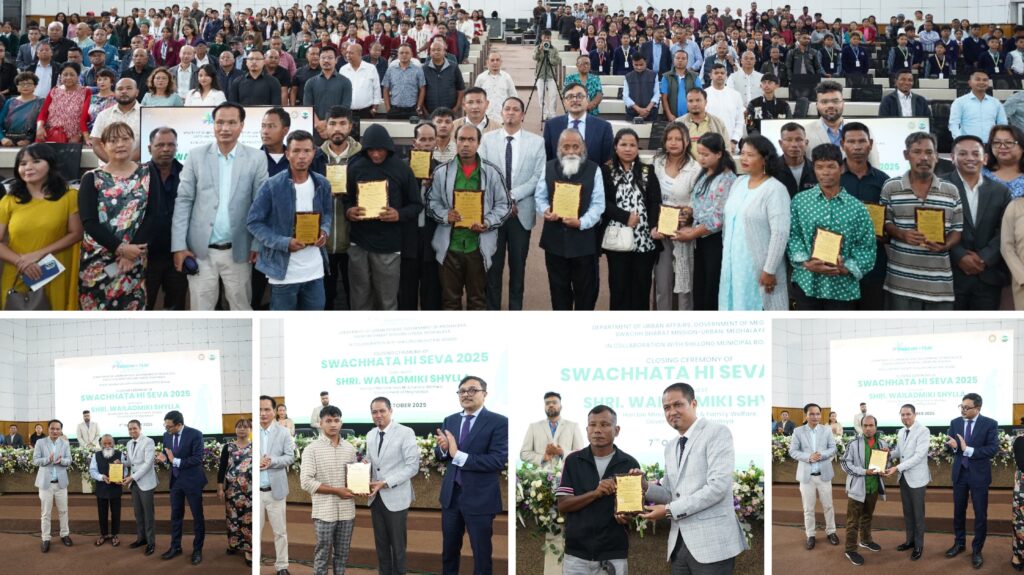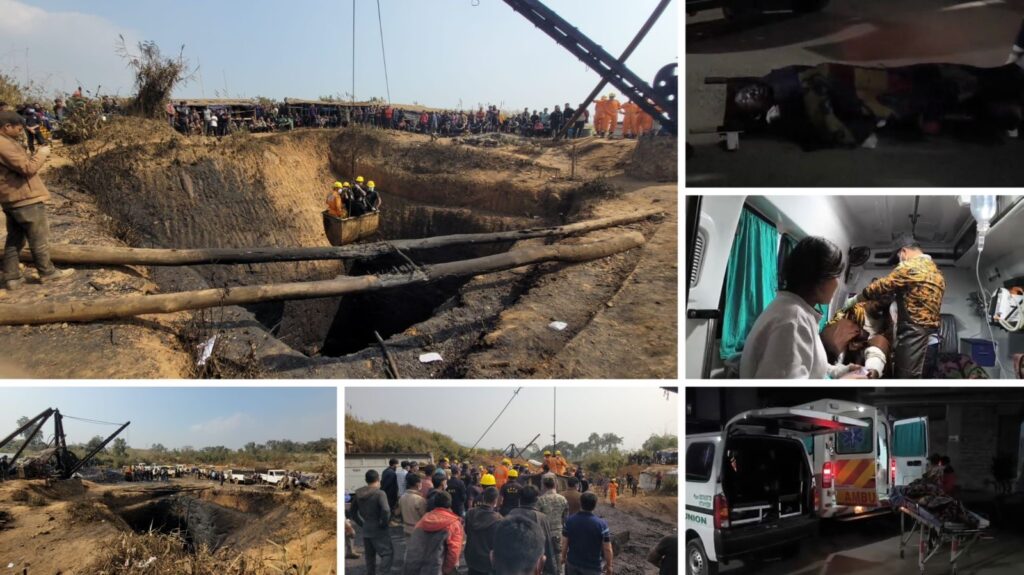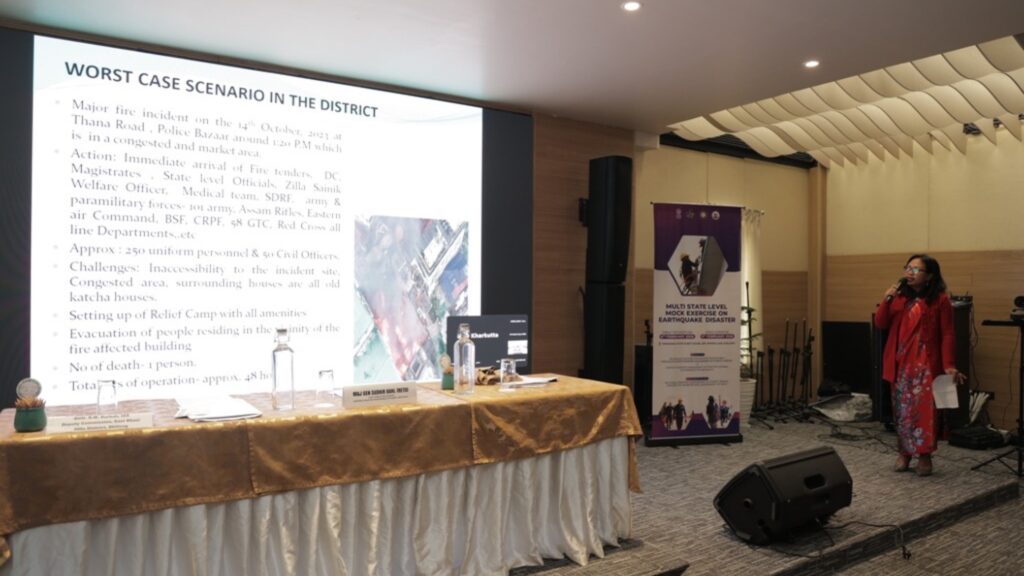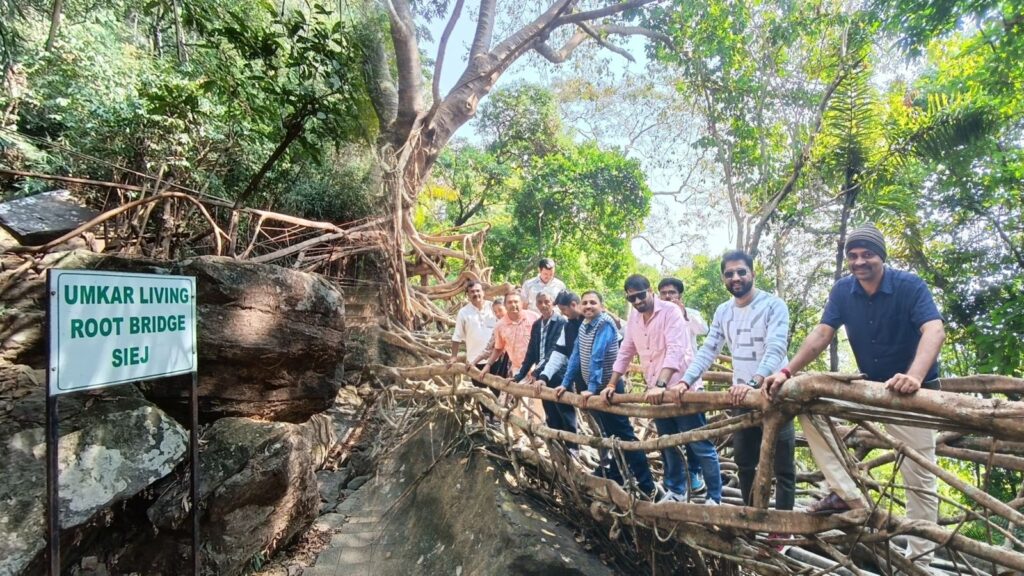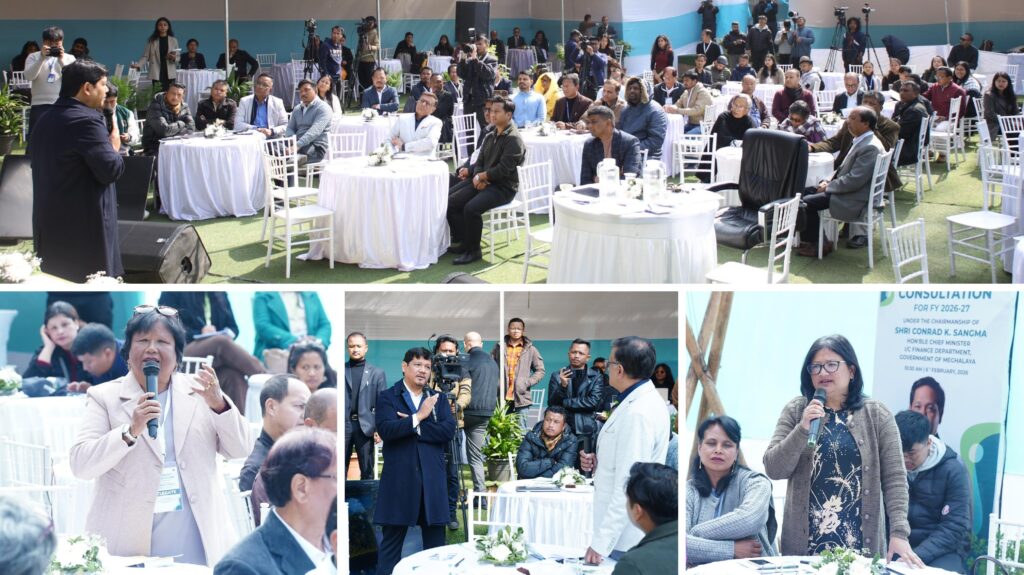Shillong, October 7 : The Department of Urban Affairs, Government of Meghalaya, in collaboration with the Swachh Bharat Mission–Urban (SBM-U) and the Shillong Municipal Board (SMB), marked the culmination of the Swachhata Hi Seva 2025 campaign at the State Convention Centre, Shillong. The event celebrated the state’s remarkable strides in waste management and honoured sanitation workers for their contribution to keeping Meghalaya clean and green
Addressing the gathering, Wailadmiki Shylla, Minister for Health & Family Welfare, highlighted that Meghalaya was among the first states in India to adopt a solid waste management policy in 2019, guided by the vision of achieving “Zero Waste.”
He noted that the state’s waste collection efficiency had increased from less than 50% in 2019 to about 83% in 2025, while segregation at source had improved from below 30% to 70%. Moreover, the waste processing capacity has seen a dramatic rise—from just 2% in 2019 to 68% in 2025, with processing plants operational across all urban townshandling a total of 215 tonnes per day. “Our state is deeply committed to environmental conservation through proper and scientific waste management,” said the Minister. “We celebrate the collective effort of those who keep our towns clean, and we pledge to continue our journey toward a cleaner, healthier Meghalaya.”
Dr. Shakil P. Ahammed, IAS, Chief Secretary, urged citizens to participate actively in maintaining cleanliness. “Let’s work together — parents, teachers, and children alike — to make Meghalaya the most clean, hygienic, and flourishing state in the country,” he appealed, emphasizing the need for community-driven cleanliness initiatives.
As part of the celebrations, ten sanitation workers were felicitated for their tireless dedication to keeping the city clean. Additionally, four unsung heroes were honoured with mementos and cash awards of ₹20,000 each for their outstanding voluntary efforts toward community cleanliness: Shynnaki Dkhar (Nongkynrih, West Jaintia Hills), Deba Prasad Ghosh (Upper Mawprem, East Khasi Hills), Raju Najiar (Dulong, West Jaintia Hills District), Aiborlang Lyngdoh Marshillong (Nongstoin). The Minister lauded their contributions, stating that these individuals “work not for fame, but out of responsibility and love for their surroundings.
A key highlight of the event was the signing of a Memorandum of Understanding (MoU) between the Shillong Municipal Board and five Urban Local Bodies (ULBs) under the Swachh Shehar Jodi (SSJ) initiative.
This partnership aims to strengthen peer learning and mentorship among cities by enhancing Swachhata performancethrough capacity building, training, exposure visits, and community engagement. The initiative, launched by the Ministry of Housing and Urban Affairs (MoHUA), seeks to institutionalize structured collaboration and innovation in urban sanitation practices.
The event also featured a cultural performance, Shad Pliang, and a song by the popular Khasi band Na U Bnai, symbolizing Meghalaya’s blend of tradition and modern civic responsibility.
Dignitaries present included W.A.M. Booth Shadap, IAS, and Prafulla Kr. Bora, MCS, who all reiterated the government’s commitment to transforming Meghalaya into a model state for sustainable urban cleanliness and waste management.

